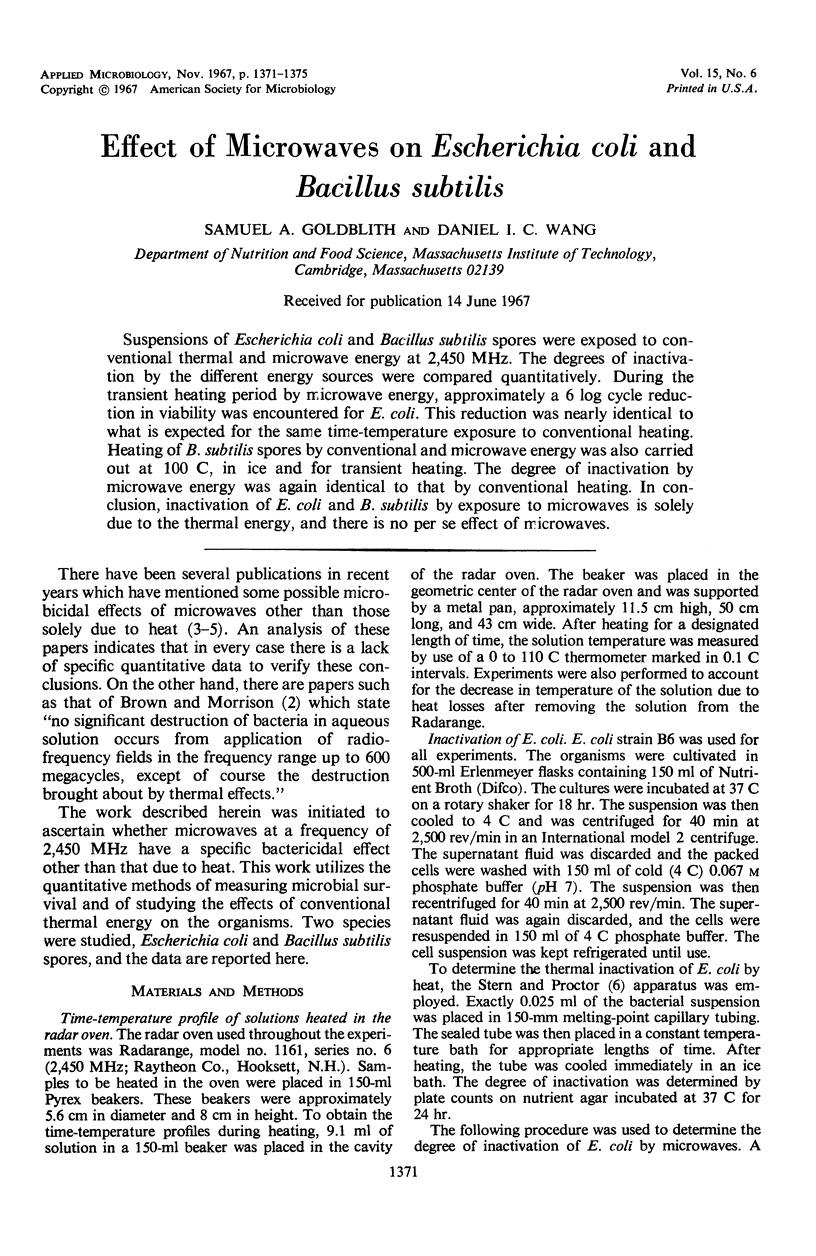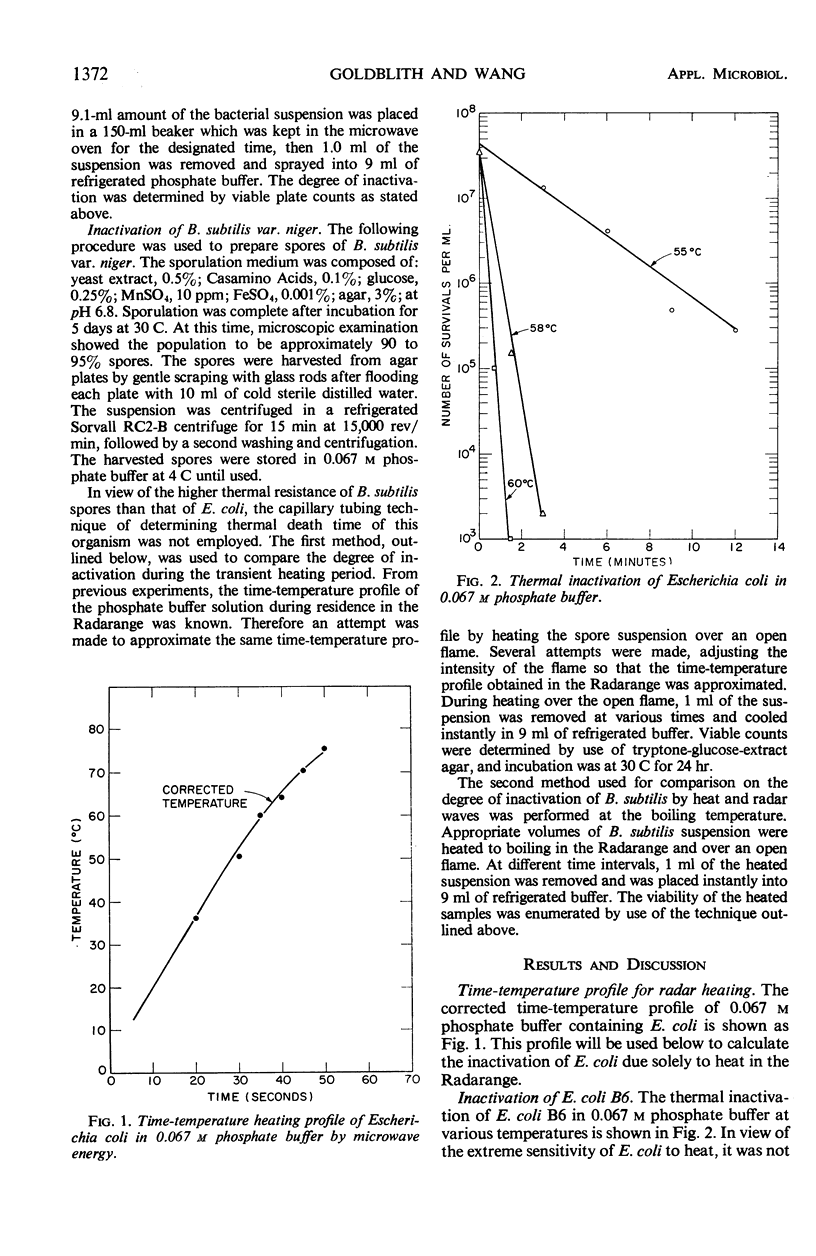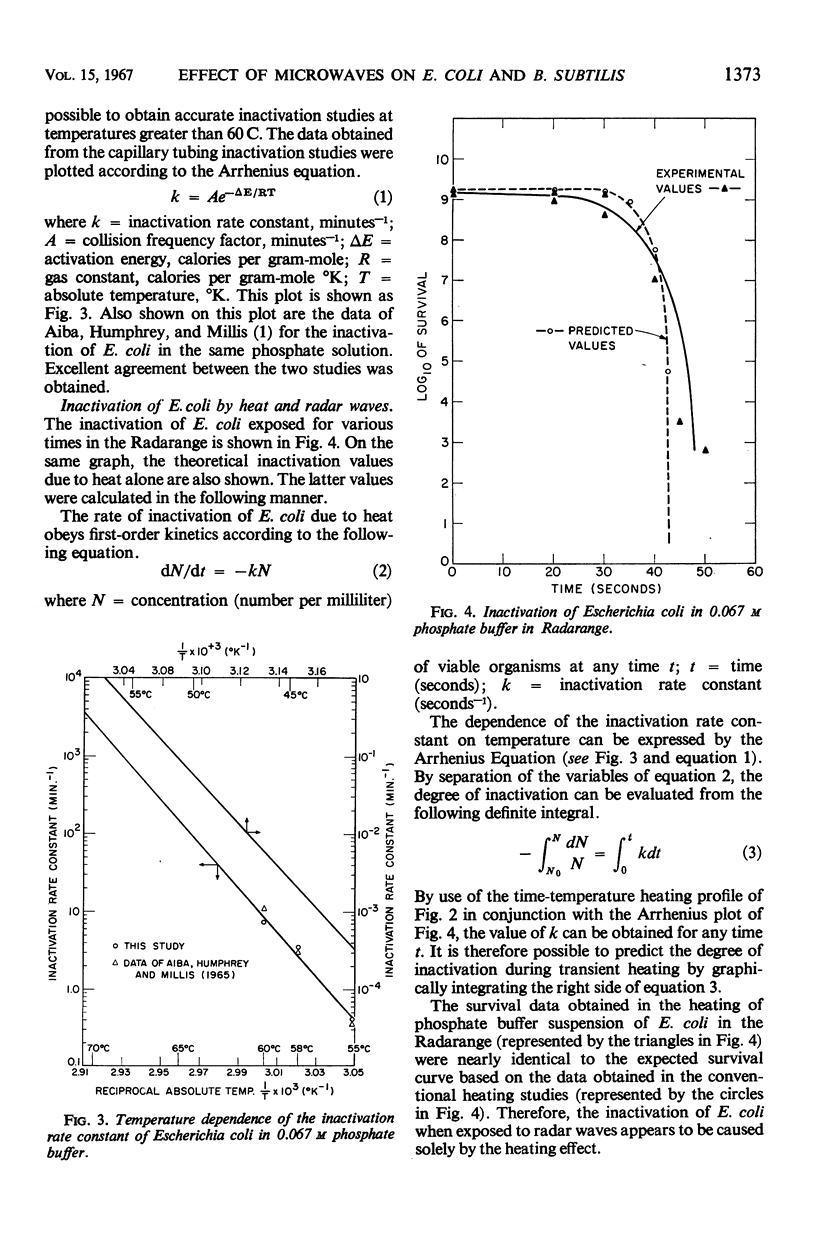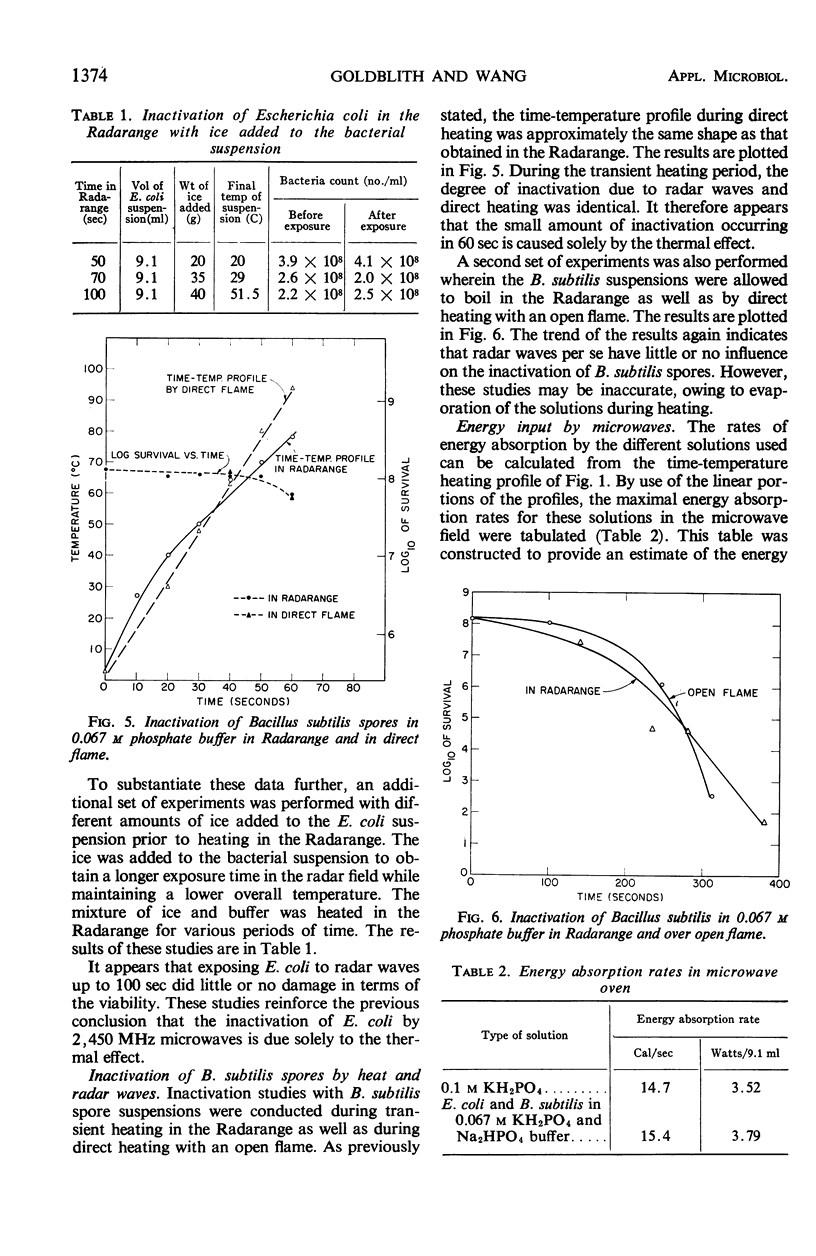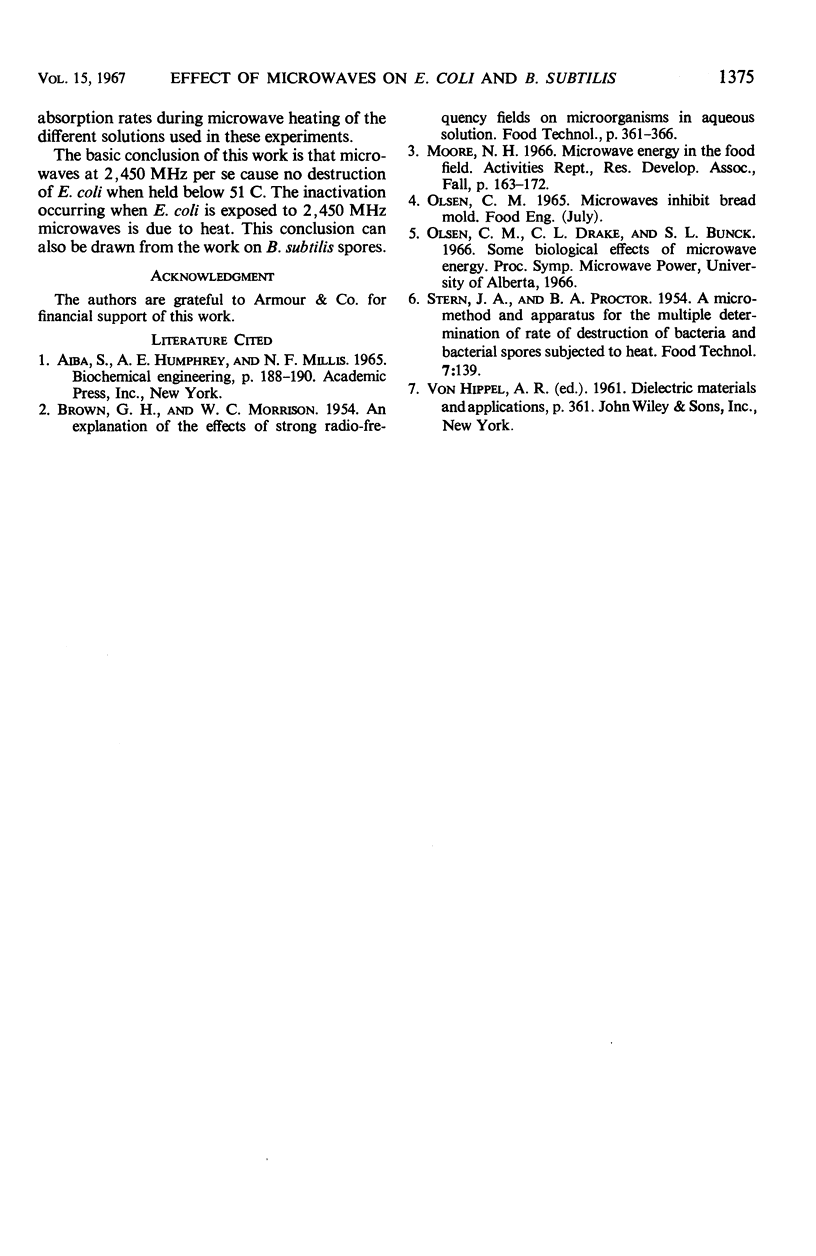Abstract
Suspensions of Escherichia coli and Bacillus subtilis spores were exposed to conventional thermal and microwave energy at 2,450 MHz. The degrees of inactivation by the different energy sources were compared quantitatively. During the transient heating period by microwave energy, approximately a 6 log cycle reduction in viability was encountered for E. coli. This reduction was nearly identical to what is expected for the same time-temperature exposure to conventional heating. Heating of B. subtilis spores by conventional and microwave energy was also carried out at 100 C, in ice and for transient heating. The degree of inactivation by microwave energy was again identical to that by conventional heating. In conclusion, inactivation of E. coli and B. subtilis by exposure to microwaves is solely due to the thermal energy, and there is no per se effect of microwaves.
Full text
PDF